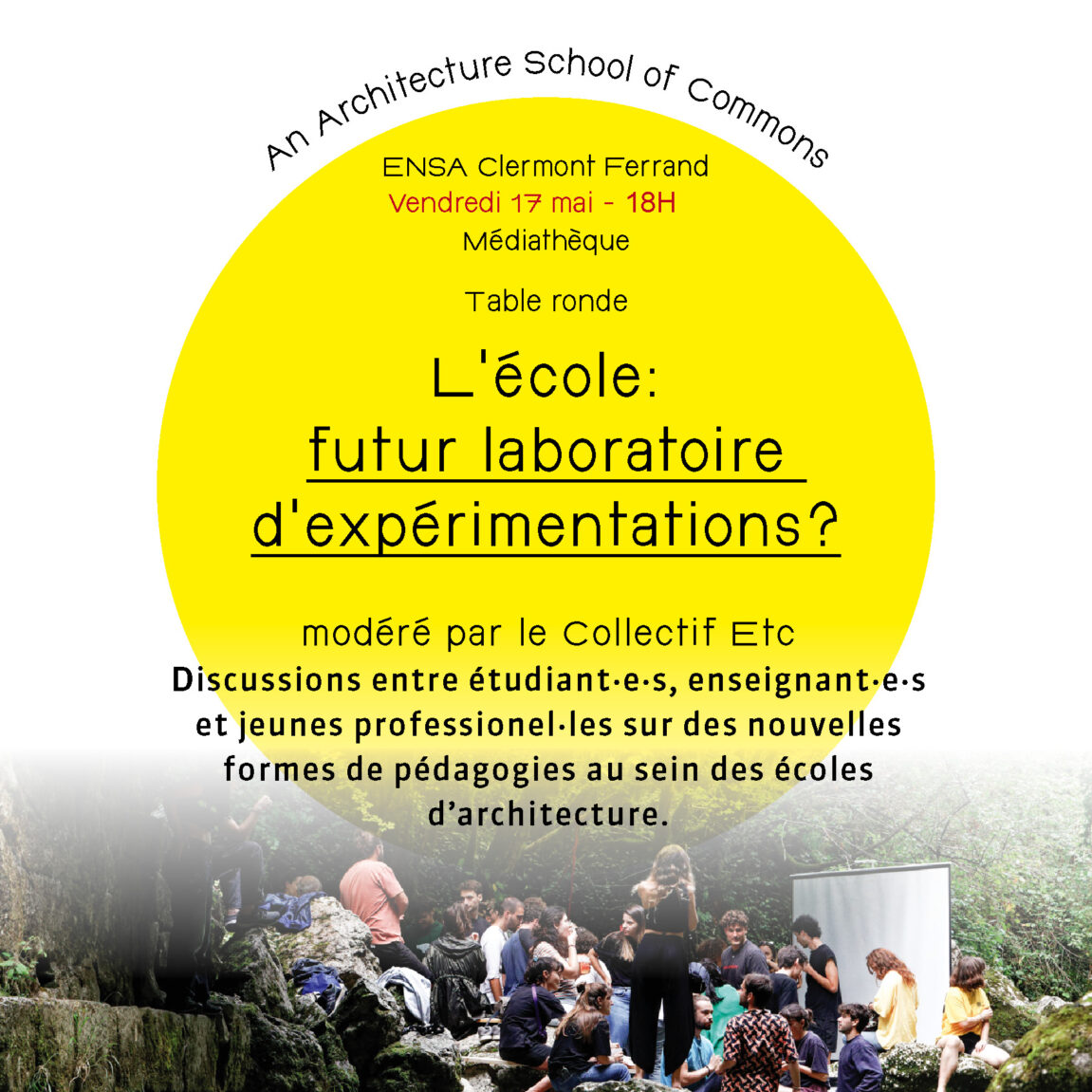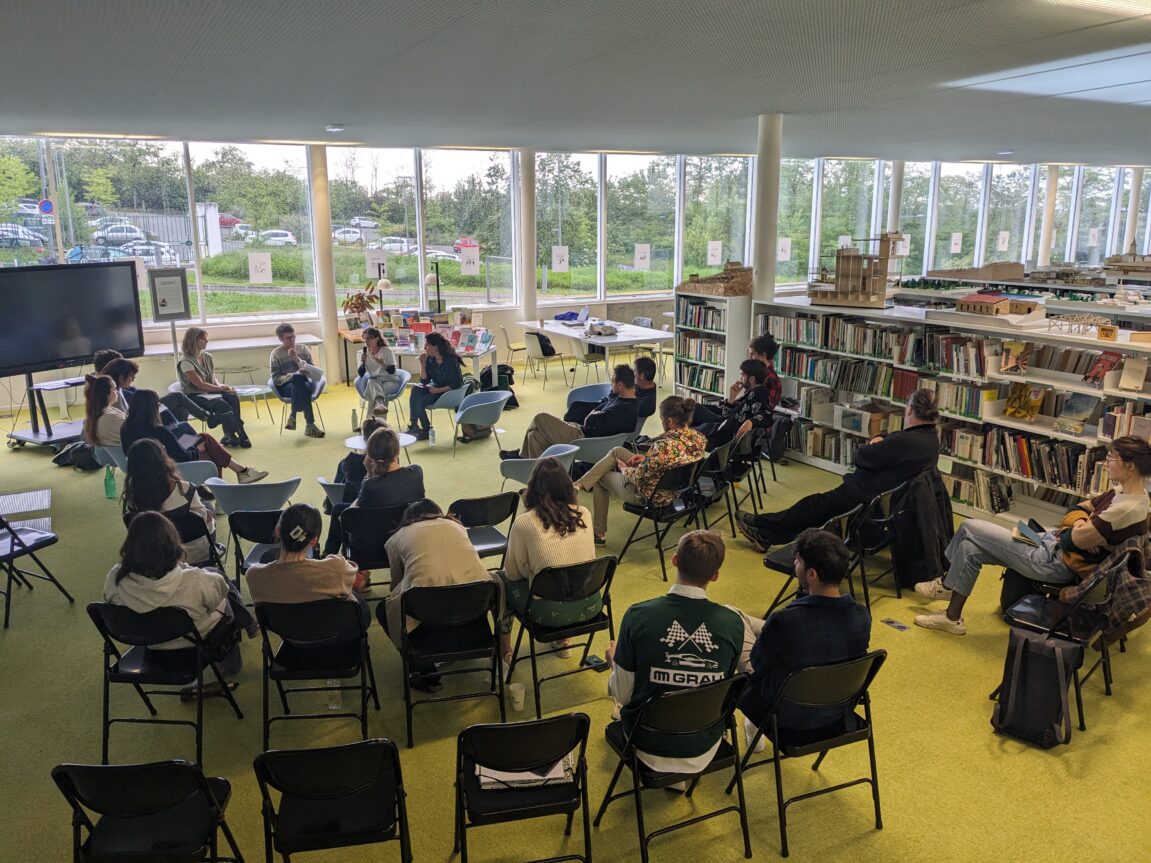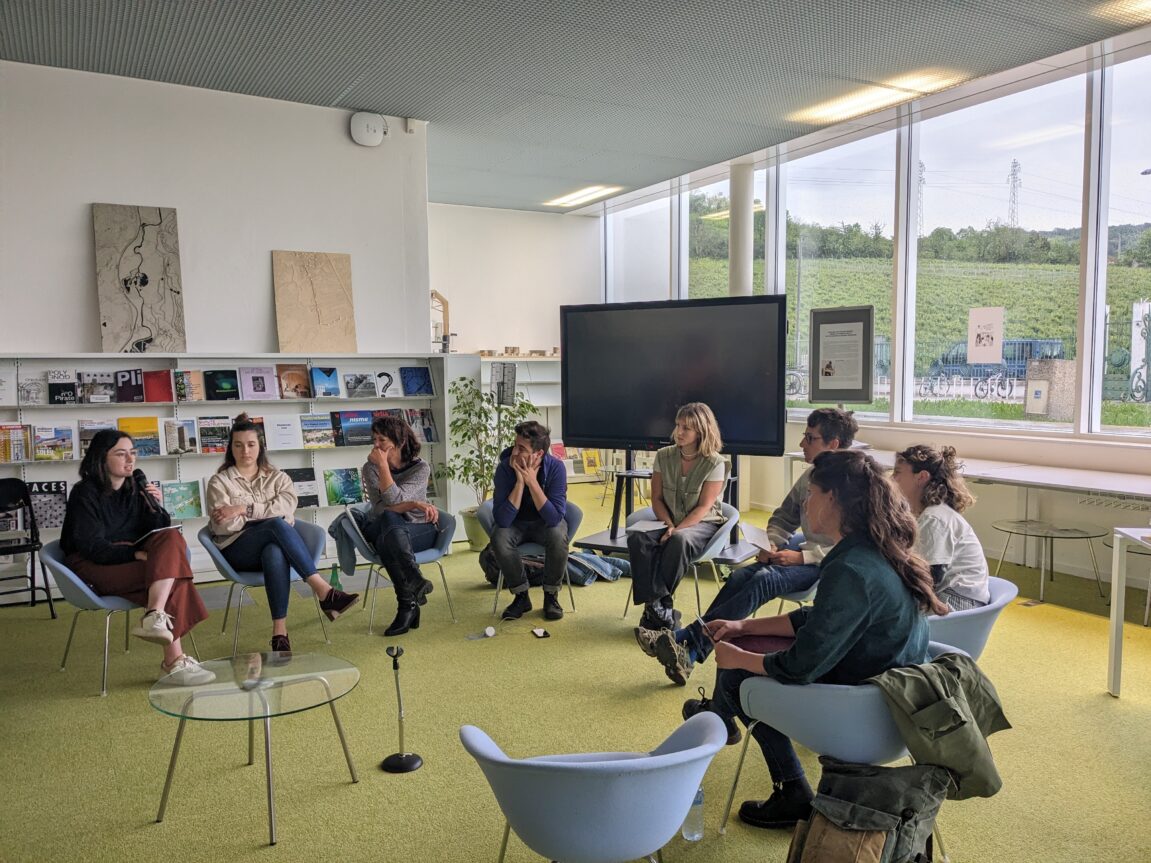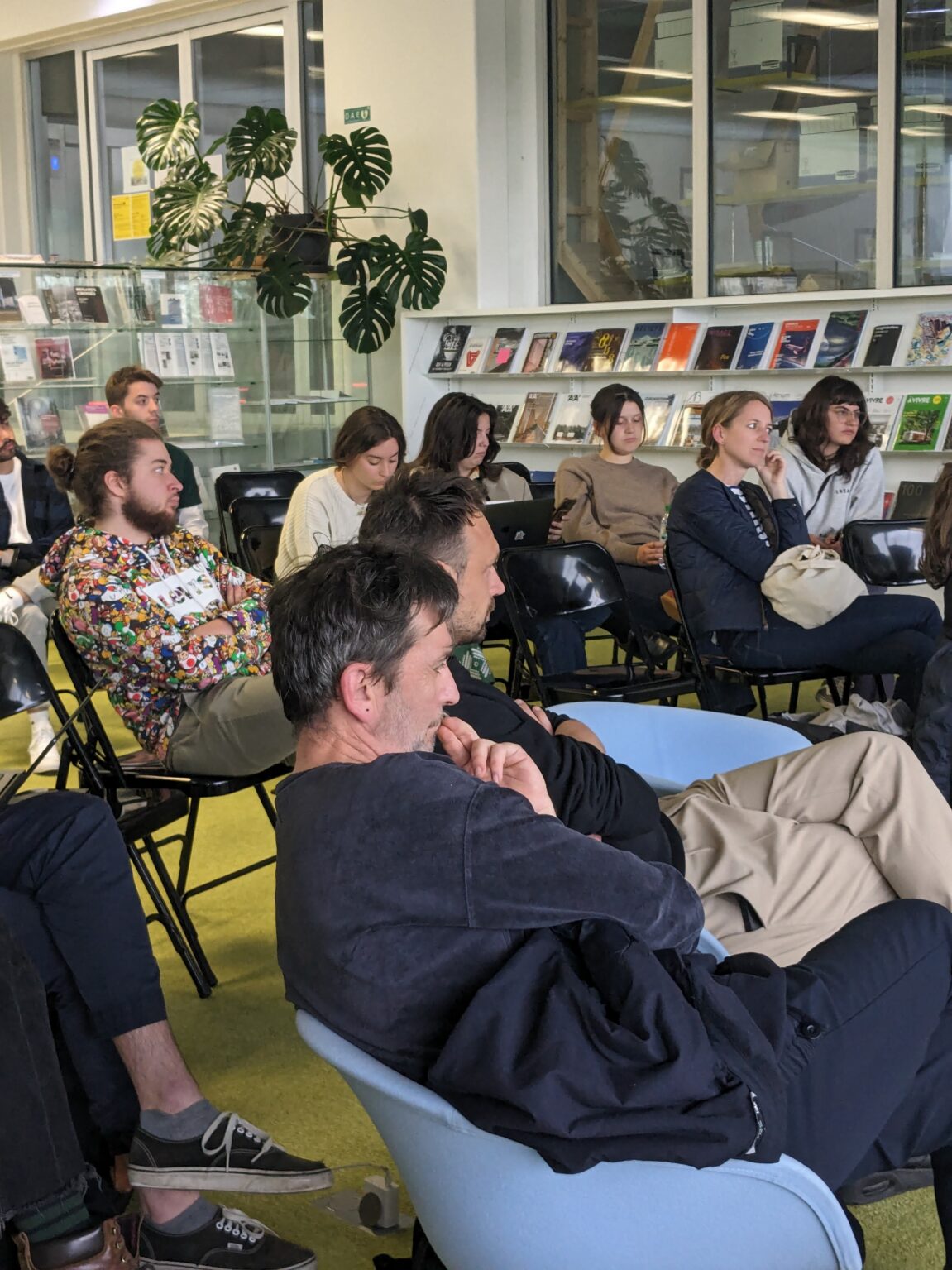
FR – Une table ronde organisée et modérée par le Collectif Etc à l’ENSA Clermont Ferrand, en mai 2024. Avec comme invitées, les étudiantes en architecture Sarah Leferme, en L3 et élue à la CFVE, Léa Lonnu en L3, active dans le mouvement ENSA en luttes en 2023, les jeunes professionnelles Alizée Gilles , architecte, diplômée de l’ENSA Nantes et Alouna Nicolas, urbaniste, diplômée de l’ENSA Grenoble, Chloé Mariey, architecte et enseignante en Master 1 et membre du conseil d’administration, Hélène GUICQUERO, directrice des études.
Dans l’introduction de son ouvrage exemplaire sur ce qu’elle nomme les “Radical Pedagogies”, Beatriz Colomina explique que l’école en tant qu’institution peut être autant une force exploratoire, un lieu de liberté, un laboratoire d’expérimentations politiques que l’endroit d’expression des courants réactionnaires et conservateurs, la reproduction de dogmes et de chapelles. L’implication du corps pédagogique autant que celle des étudiant.es eux-mêmes semblent déterminantes pour faire tendre l’institution du côté de l’émancipation et de l’engagement.”
EN – A round table organized and moderated by the Collectif Etc at ENSA Clermont Ferrand in May 2024. The invited speakers include architecture students Sarah Leferme, in her third year and a representative on the CFVE, Léa Lonnu, also in her third year and active in the ENSA en luttes movement in 2023; young professionals Alizée Gilles, an architect and graduate of ENSA Nantes, and Alouna Nicolas, an urban planner and graduate of ENSA Grenoble; Chloé Mariey, an architect and lecturer in the first year of the Master’s program and a member of the board of directors; and Hélène Guicquero, Director of Studies.
In the introduction to her exemplary work on what she calls “Radical Pedagogies,” Beatriz Colomina explains that the school as an institution can be as much an exploratory force, a place of freedom, and a laboratory for political experimentation as it can be a site for the expression of reactionary and conservative currents, the reproduction of dogmas and sects. The involvement of the teaching staff as well as that of the students themselves seems crucial in steering the institution towards emancipation and engagement.
Recording of the discussions :


